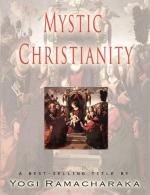But we need not enter into discussions of this kind, say the Higher Critics, for the so-called “prophecy” refers to an entirely different matter. It appears, say they, that Ahaz, a weakling king of Judea, was in sore distress because Rezin the Syrian king, and Pekah the ruler of Northern Israel, had formed an offensive alliance against him and were moving their combined forces toward Jerusalem. In his fear he sought an alliance with Assyria, which alliance was disapproved of by Isaiah who remonstrated with Ahaz about the proposed move. The king was too much unnerved by fear to listen to Isaiah’s arguments and so the latter dropped into prophecy. He prophesied, after the manner of the Oriental seer, that the land would be laid waste and misery entailed upon Israel, should the suicidal policy be adopted. But he held out a hope for a brighter future after the clouds of adversity had rolled by. A new and wise prince would arise who would bring Israel to her former glory. That prince would be born of a young mother and his name would be Immanuel, which means “God with us.” All this had reference to things of a reasonably near future and had no reference to the birth of Jesus some seven hundred years after, who was not a prince sitting upon the throne of Israel, and who did not bring national glory and renown to Israel, for such was not his mission. Hebrew scholars and churchmen have often claimed that Isaiah’s prophecy was fulfilled by the birth of Hezekiah.
There is no evidence whatever in the Jewish history of the seven hundred years between Isaiah and Jesus, that the Hebrews regarded Isaiah’s prophecy as relating to the expected Messiah, but on the contrary it was thought to relate to a minor event in their history. As a Jewish writer has truly said, “Throughout the wide extent of Jewish literature there is not a single passage which can bear the construction that the Messiah should be miraculously conceived.” Other writers along this line have stated the same thing, showing that the idea of a Virgin Birth was foreign to the Jewish mind, the Hebrews having always respected and highly honored married life and human parentage, regarding their children as blessings and gifts from God.
Another writer in the Church has said, “Such a fable as the birth of the Messiah from a virgin could have arisen anywhere else easier than among the Jews; their doctrine of the divine unity placed an impassable gulf between God and the world; their high regard for the marriage relation,” etc., would have rendered the idea obnoxious. Other authorities agree with this idea, and insist that the idea of the Virgin Birth never originated in Hebrew prophecy, but was injected into the Christian Doctrine from pagan sources, toward the end of the first century, and received credence owing to the influx of converts from the “heathen” peoples who found in the idea a correspondence with their former beliefs. As Rev. R.J. Campbell, minister of the City Temple, London, says in his “New Theology,” “No New Testament passage whatever is directly or indirectly a prophecy of the virgin birth of Jesus. To insist upon this may seem to many like beating a man of straw, but if so, the man of straw still retains a good deal of vitality.”




